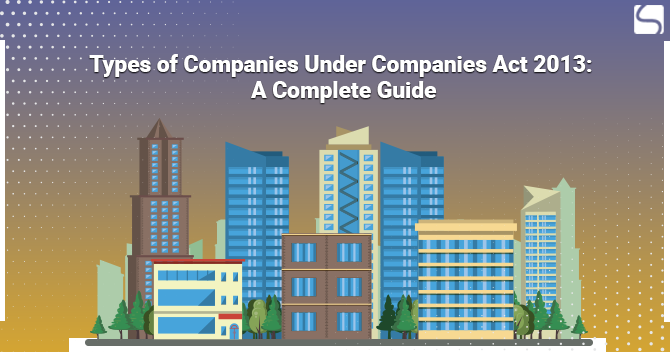Start a Retail Shop in India: Factors & Licenses to Consider
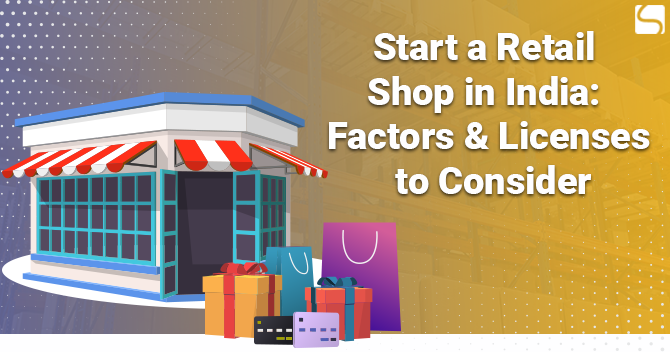
Shivani Jain | Updated: Dec 17, 2020 | Category: Business
The term “Retail Business” denotes the purchase of finished goods from the producers or manufacturers and selling them further to customers. Further, India ranks at the top position in the world in terms of retail and wholesale trade and contributes around 23% and 8% to India’s total GDP (Gross Domestic Product) and employment, respectively. However, if an individual wants to start a retail shop in India, then, in that case, he/she needs to first consider the factors involved and the licenses required.
In this blog, we will discuss the factors and licenses required to start a Retail Shop in India.
Table of Contents
Growth of Retail Sector in India
The Growth of the Indian Retail Sector can be summarised as:
- According to an article published by Live Mint on 26.02.2020, the Indian Retail Market is projected to reach the US $1.1 – 1.3 trillion by the end of the year 2025, from the US $0.7 trillion in 2019, as the same is growing at a CAGR (Compound Annual Growth Rate) of 9 to 11%;
- As per a report published by the Boston Consulting Group in association with the Retailer Association of India, the Indian Retail Sector is likely to exceed the trillion-dollar mark;
- According to the report named “Retail Industry in India”, published by the India Brand Equity Foundation (IBEF) on 04.12.2020, the Indian Retail Industry is projected to cross the US $1 trillion by the end of the year 2020;
- As per the details provided by the Department of Promotion of Industry & Internal Trade (DPIIT[1]), the Indian Retail Sector has received an FDI (Foreign Direct Investment) of the US $2.12 billion during April 2000 and March 2020;
- According to a report published by Statista on 16.10.2020, the market size of the Indian Retail Sector is expected to reach the amount of the US $1.7 trillion by the end of the year 2026, up from the US $950 billion in 2018;
- As per a report named “India- The Top Retail Destination”, published by the Invest India (National Investment Promotion and Facilitation Agency), the Indian Retail Market has undergone a major change and has witnessed incredible growth in the past ten years. As a result, the overall retail market is set to exceed the threshold of the US $1.75 trillion marks by the end of 2026 from the US $795 billion in 2017;
Reasons for the Growth of the Indian Retail Sector
The reasons for the growth of the Indian Retail Sector are as follows:
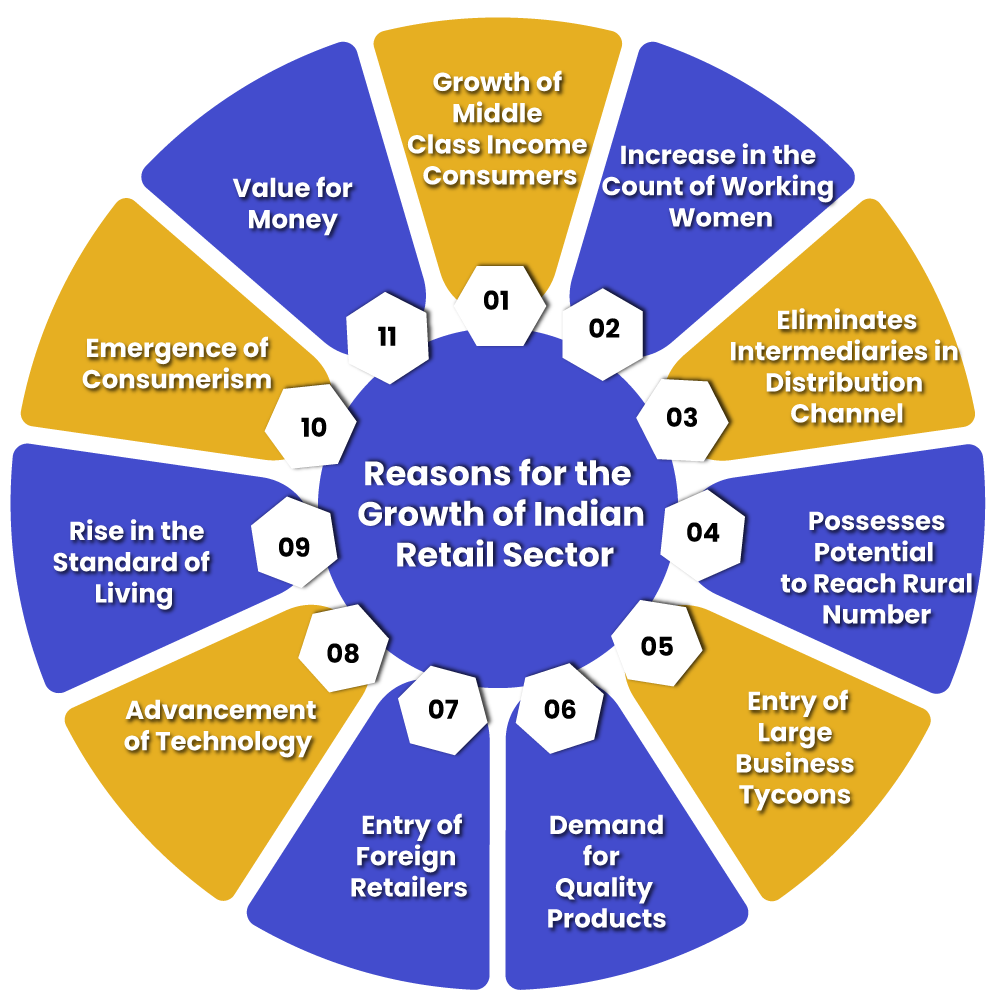
- Growth of Middle-Class Income Consumers;
- Increase in the Count of Working Women;
- Eliminates Intermediaries in Distribution Channel;
- Possesses Potential to Reach Rural Number;
- Entry of Large Business Tycoons;
- Demand for Quality Products;
- The entry of Foreign Retailers;
- Advancement of Technology;
- Rise in the Standard of Living;
- The emergence of Consumerism;
- Value for Money;
Benefits of Starting a Retail Shop in India

The benefits to start a Retail Shop in India are as follows:
- Provides Easy Access to Market;
- Requires Minimal Costs;
- Possess Early Growth Potential;
- Widens Market Reach;
- Promotes Consumer Intelligence;
Different Ideas to Start a Retail Shop in India
The different ideas to start a Retail Shop in India are as follows:
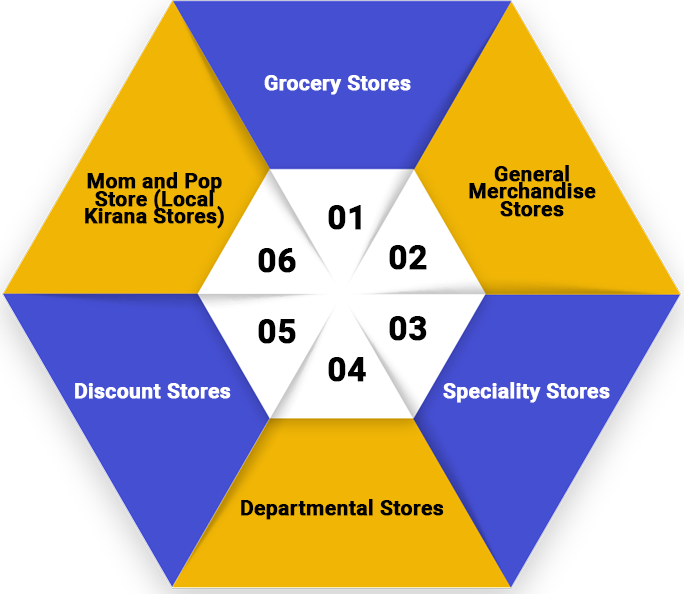
Grocery Stores
In India, one of the most popular types of retail business is Grocery Store. This type of business comprises of selling of a variety of food and non-food items, such as follows:
- Cereal;
- Meat;
- Dairy Products;
- Health;
- Cleaning Products, etc.;
General Merchandise Stores
The term “General Merchandise Stores” denotes the large-format grocery stores that are involved in selling a variety of items, such as follows:
- Clothing;
- Furniture;
- Sporting Goods;
- Kitchenware, etc.,
Example: Big Bazaar, TATA, Croma
Speciality Stores
As the name suggests, the term “Specialty Stores” means a store that is specialized in a particular product or item. That means it will not sell anything other than the range of products of a particular brand.
Example: Reebok Merchandise at Reebok Store
Departmental Stores
The term “Departmental Stores” denotes a setup that provides a variety of products to the consumers under one roof. That means it acts as the one stop destination for meeting all the shopping needs. The term variety of products includes the following:
- Electronic Appliances;
- Apparels;
- Jewellery;
- Toiletries;
- Cosmetics;
- Footwear;
- Sportswear;
- Toys;
- Books;
- CDs, DVDs;
Example: Shoppers Stop and Pantaloons
Discount Stores
The term Discount Stores also refer to the stores that offer a large range of products and items to the consumers but at a discounted rate. However, there are chances that the quality offered for the products in discount stores might be a little inferior or low-grade as compared to the department stores.
Example: Vishal Mega Mart
Mom and Pop Store (Local Kirana Stores)
The term “Mom and Pop Stores” denotes the small stores run by the local vendors in nearby locality and neighbourhood to cater to all the daily needs of the consumers residing in the vicinity. However, it shall be considerate to note that theses retail stores do not offer any high-end or luxurious products.
Top Retail Stores in India
The top retail stores in India are as follows:
- Infiniti Retail Ltd;
- V-mart Retail Ltd;
- Trent Limited;
- Shoppers Stop;
- Aditya Birla Fashion and Retail Limited;
- Avenue Supermarts Limited;
- Future Retail Limited;
- Reliance Retail Limited;
Licenses Required to Start a Retail Shop in India
The licenses required to start a Retail Shop in India are as follows:
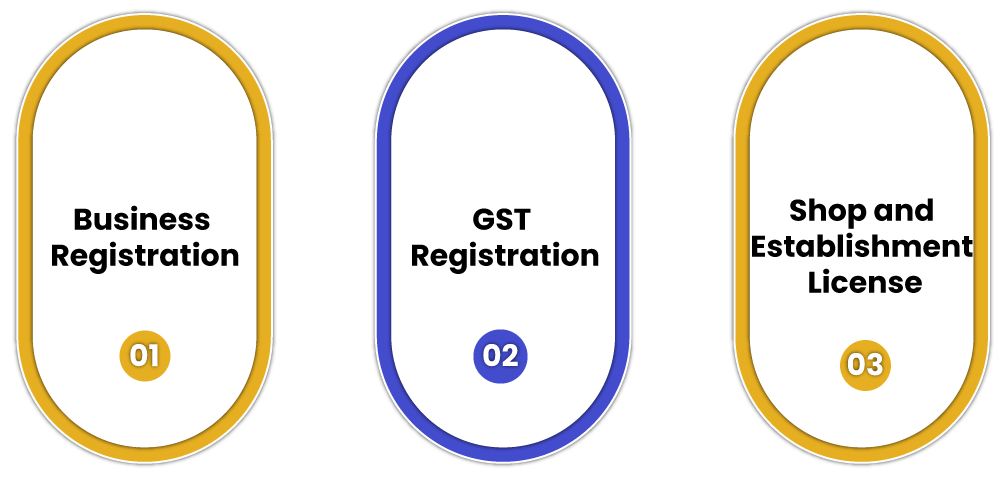
Business Registration
If an individual wants to start a Retail Shop in India, he/she must go for obtaining Private Limited Company Registration. The reason behind the same is that a retail business involves huge annual business turnovers than service-based businesses.
Documents required for obtaining Private Limited Company Registration
The basic documents required to acquire Private Limited Company Registration are as follows:
- Identity Proof;
- Address Proof;
- Registered Office Address Proof;
GST Registration
Out of all the licenses required to start a retail shop in India, another significant one is the GST Registration. The proposed owner requires to apply for registration under GST if the aggregate business turnover exceeds the threshold of Rs 40 lakhs and Rs 20 lakhs in the special states.
Documents required for obtaining GST Registration
The documents required for obtaining GST Registration are as follows:
- Proof of Business Registration;
- Address Proof of the Registered Office;
- Identity Proof of the Shop Owner;
- Address Proof of the Shop Owner;
- Details of the Business Current Bank Account;
- PAN Card details;
- Lease Agreement or Rental Agreement;
Shop and Establishment License
The main reason behind the need for Shop License or the Shop and Establishment License is to defend and protect the rights and interests of the workers employed.
Documents required for obtaining Shop License
The documents required for obtaining Shop and Establishment are as follows:
- PAN Card details;
- Identity Proof of the owner;
- Address proof of the Owner;
- Details of the Employees employed;
- Postcard Photo of the Retail Shop;
- Address Proof of the Premise used as Retail Shop;
Factors to Consider While Drafting Retail Shop Business Plan
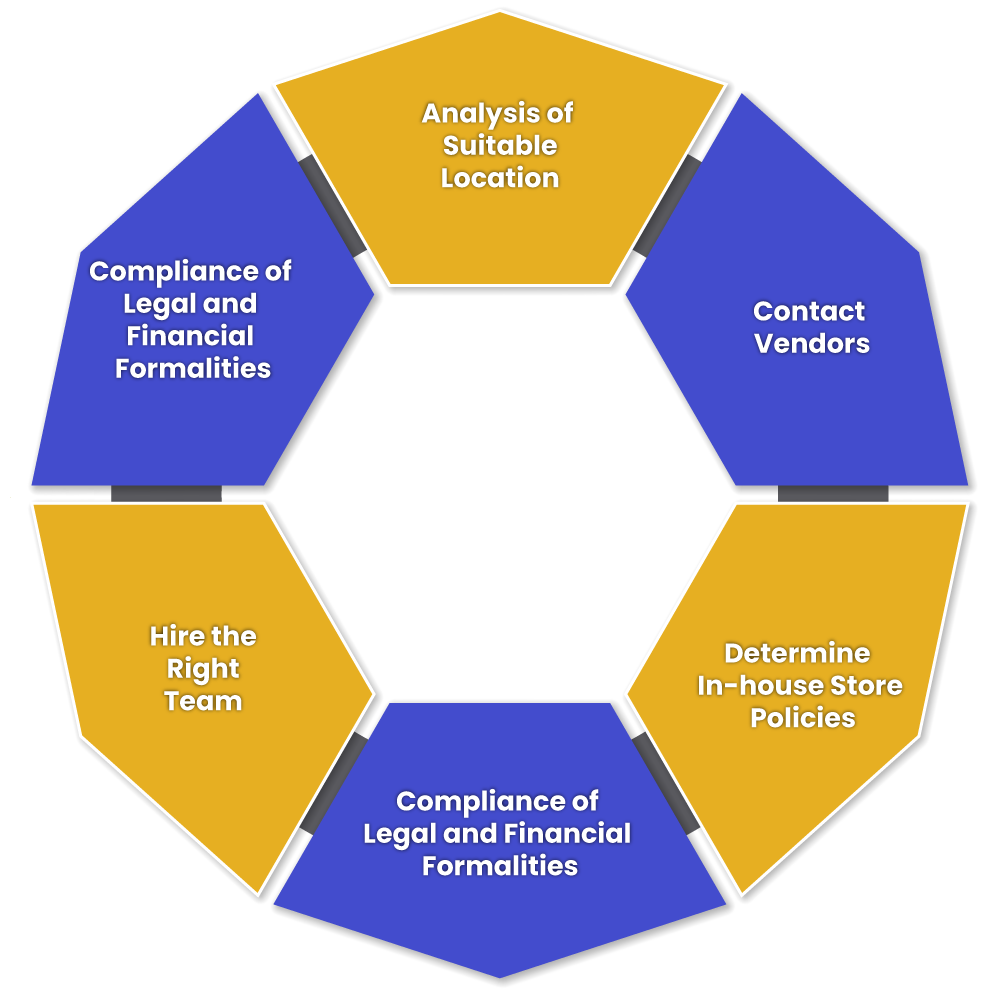
If an individual wants to start a Retail Shop in India, the factors he/she need to consider while drafting the Retail Shop Business Plan are as follows:
Analysis of Suitable Location
The proposed owner of the retail shop needs to choose a location that suits its customer requirement.
For Example: if the owner wants to sell edibles, stationery items, and basic ration, then, in that case, he/she requires to select a location that is near to schools, colleges, localities, residential societies, street markets, etc.
Contact Vendors
Another significant factor is to contact vendors and suppliers of products and items. Further, it is always suggested to go for the ones who offer quality products at a reasonable and affordable price. Also, it is advised to make an association with local and small vendors to have a relation with them as well.
Determine In-house Store Policies
Formulating the right in-house store policies acts as the base or foundation store for a successful retail business. Further, this factor will help the owner in managing the day to day affairs of the staff hired, daily operations, together with warehousing and staffing.
Formulate Marketing Strategy
The term “Marketing Strategy” denotes the way from which a business can reach to its proposed audience in an easy and hassle-free manner. Therefore, figuring out the appropriate channels for publicity and advertisement plays a significant part in spreading awareness pertaining to the brand and products.
Further, the best way to market a business is to create social media accounts on different platforms available, such as Twitter, Facebook, Pinterest, LinkedIn, Instagram, etc., together with creating the company’s own website.
Hire the Right Team
As it is a proven fact that no one can run an entire business on his/ her own, therefore, hiring the right team of professionals or employees plays a crucial part. Further, it is advised to every proposed retail shop owner to properly train his/her employees after hiring them so that they are able to handle all the future customer related issues.
Compliance of Legal and Financial Formalities
Every business, whether a retail shop or not, becomes full-fledged in nature only after completing all the required financial and legal compliance. Therefore, a business plan must handle both the financial and legal aspects of the said business.
Conclusion
In a nutshell, if an individual wants to start a retail shop in India, then, in that case, he/she requires to firstly narrow down his/her target audience. After that, the proposed owner needs to decide on the factors, such as, types of goods that he/she wants to sell, perfect location, required cost, growth aspect, hiring of staff, marketing strategy, and last but not the least, the legal and financial requirements.
After ticking off all the requirements and factors to consider, just plan a grand opening, and start your retail business operation.













